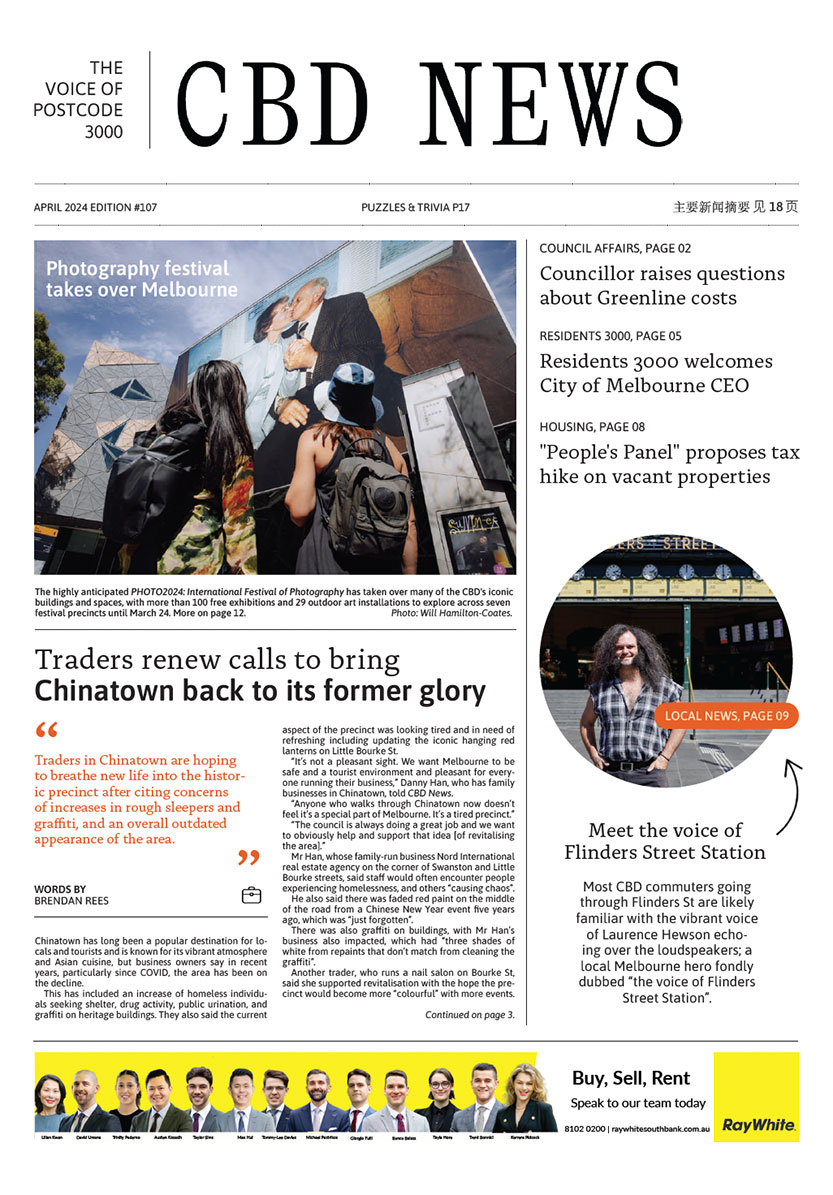Council well placed to support battling businesses
By Stephen Mayne
At a time when small business is getting wiped out by the coronavirus (COVID-19), it was good to see City of Melbourne councillors nimbly come up with a $10 million support package at the Future Melbourne Committee meeting on March 17.
City of Melbourne has the second strongest balance sheet of any Australian council after City of Sydney. The latest quarterly update showed a cash balance of $144.5 million as of December 31 and no debt.
Some of the stimulus detail is still to be worked out but a good early move saw 600-plus Queen Victoria Market traders offered rent relief, including a 50 per cent three month discount for non-food stalls and 25 per cent off for food-related traders.
Councils across Australia are well placed to provide support to their communities and City of Melbourne was one of the first to act. As the federal government deluges cash on individuals and businesses, it should also think about giving money direct to councils for locally managed stimulus programs.
Should council add to its property holdings?
One thing that councils can do during a crisis is use its balance sheet to pick up additional property holdings, particularly if there are distressed sellers of strategic assets.
Over the years, the City of Melbourne has bought into a variety of property assets including The Regent Theatre (held in a 50-50 joint venture with the state), the Kathleen Syme centre in Carlton, the Boyd Community Hub in Southbank and the Munro site next to Queen Victoria Market.
In hindsight, council should have swooped on the Palace Theatre at the top of Bourke St when it was sold for $11.2 million in 2012. One of Melbourne’s biggest and best live music venues was then sadly closed in April 2014 and internal demolition started a few weeks ago. What a shame!
If other theatres become available during this crisis after being forced to close, council should be ready to step in.
Similarly, the AFL is reportedly asking the state government for a $250 million interest free loan to help it through a cash crisis.
Perhaps it should consider selling its biggest asset – Marvel Stadium at Docklands – to City of Melbourne or the state government.
Most stadiums around the world are owned by governments and having long term control of Marvel Stadium would be a great strategic move for City of Melbourne in terms of managing the future development of Docklands.
With net assets of more than $4.4 billion and no debt, such a move is within the capability of council.
Councillors disagree with officers over new Dexus office tower
The Reserve Bank building at 60 Collins is an iconic location at the Paris End of Collins St, so it is exciting that property giant Dexus is proposing to build a new high quality $140 million office tower on the site.
Sydney-based Dexus is close to finishing its $1.4 billion twin towers across the road at 80 Collins St – a project it bought from the Queensland government in 2019.
An unusual element of council’s involvement in the Reserve Bank tower proposal was that the council officers recommended Minister for Planning Richard Wynn refuse it, partly because it would overshadow the food court at AMP’s Collins Place across the road.
The councillors unanimously overturned this advice at the March 17 committee meeting, instead passing a resolution saying that it didn’t object to the proposal provided the over-shadowing was limited to less than 30 per cent of the Collins Place food court between 11am and 2pm on September 30.
This will be an interesting test for the Minister. Just how high is too high at this iconic site and should a privately-owned enclosed food court be protected from shadowing?
Maximum transparency on CEO pay
As promised in last month’s columns, there are some important disclosures to be made about the remuneration arrangements of former City of Melbourne CEO Ben Rimmer, who departed from Town Hall in January 2019.
Rimmer, who is now the state government’s Director of Housing, is believed to have received a six figure ex gratia exit payment over and above his contractual entitlements.
The detail hasn’t been disclosed in the 2018-19 City of Melbourne annual report which explicitly disclosed the pay arrangements for the new CEO Justin Hanney, but not his predecessor.
This was the second ex gratia payment to Rimmer by the council, who also received sick leave payments over and above his contractual and statutory entitlements in 2016.
As one of the councillors who agreed to the sick leave top-up payments at the time, I think it was the right and compassionate thing to do in terms of retaining a talented new CEO battling an unexpected illness. However, the details should have been disclosed at the time, rather than kept confidential.
The same principle applies to any exit payment. CEO contracts are typically generous at the City of Melbourne and if additional payments are going to be approved, at the very least this should be disclosed and explained to the public.
Farewell for now
Finally, this will be my final CBD News column for a while. While not certain, there is a possibility that I’ll be a candidate in the City of Melbourne elections come October and in those circumstances it is appropriate to head to the exits.
Keep supporting your wonderful local monthly newspaper in the period ahead as they provide the best coverage of all things City of Melbourne •

Backloading across borders with Transcorp – navigating interstate moves with ease






 Download the Latest Edition
Download the Latest Edition